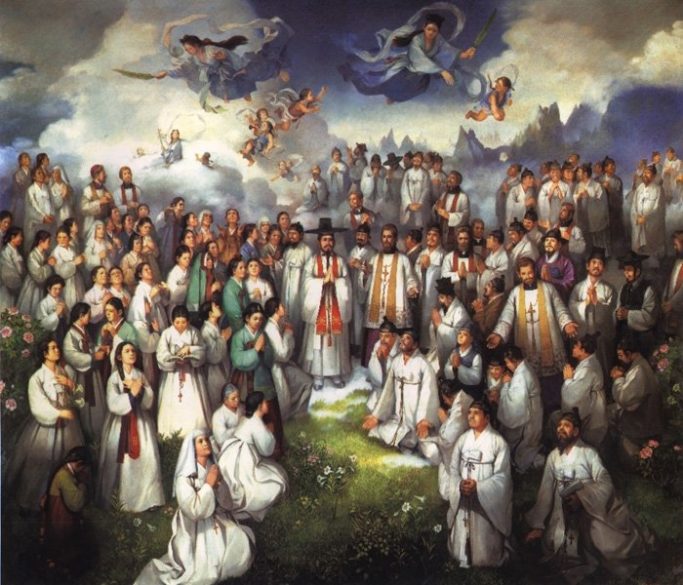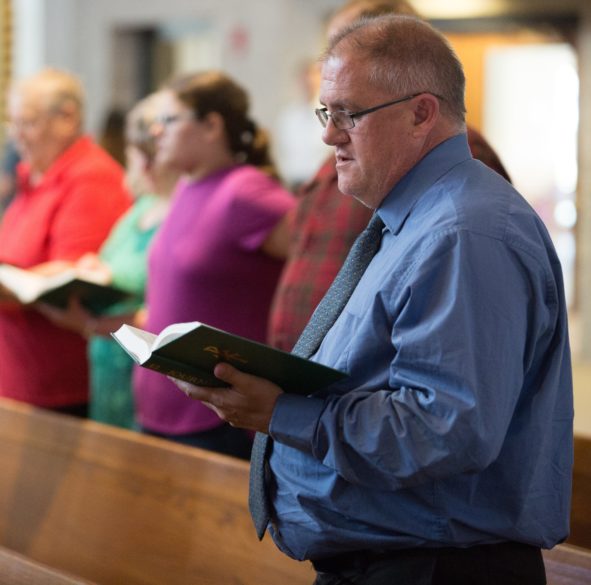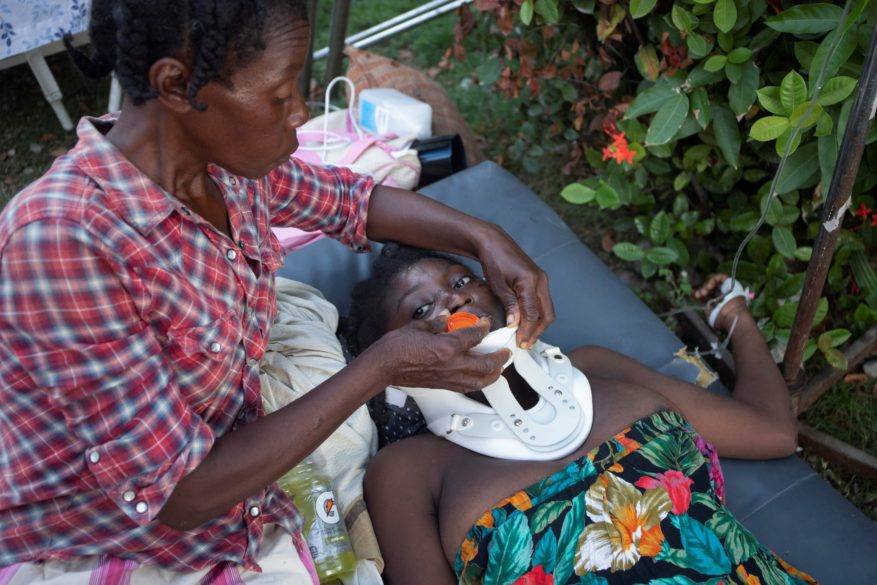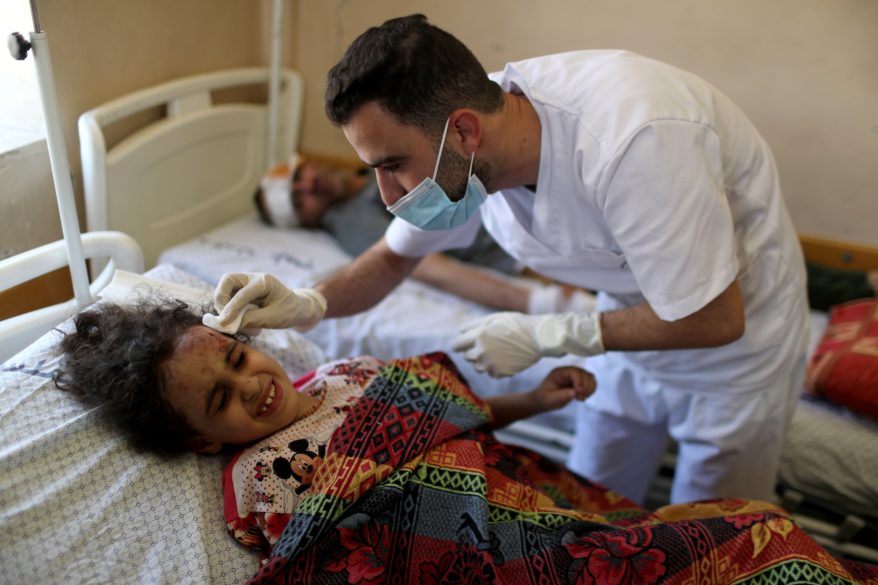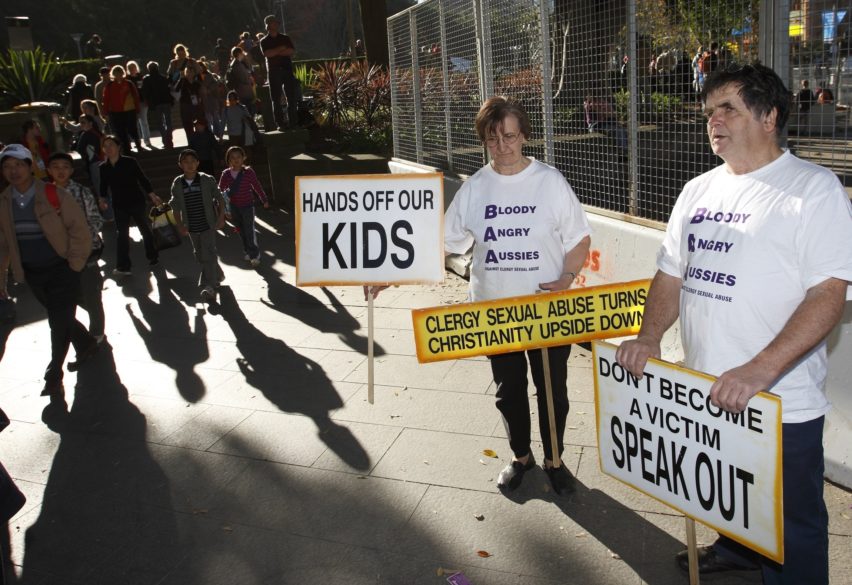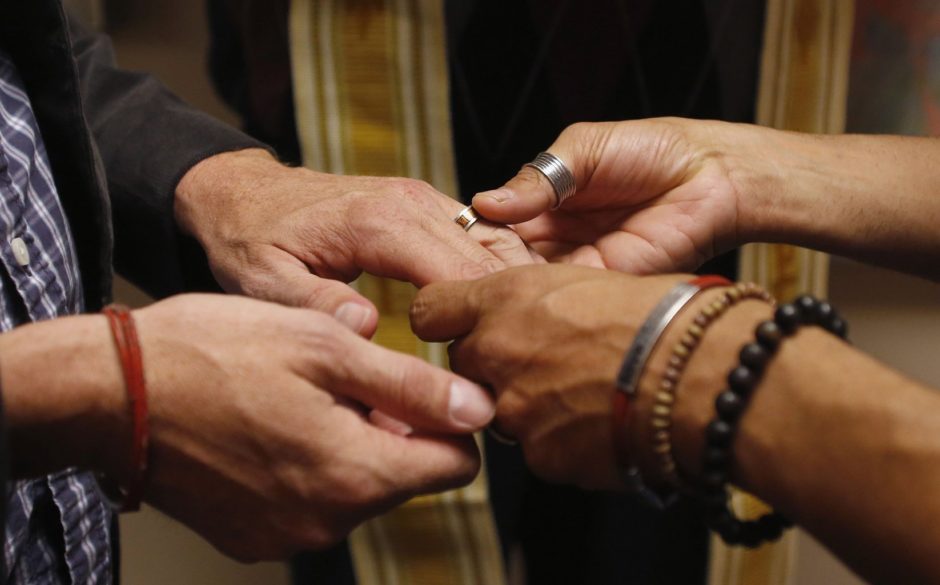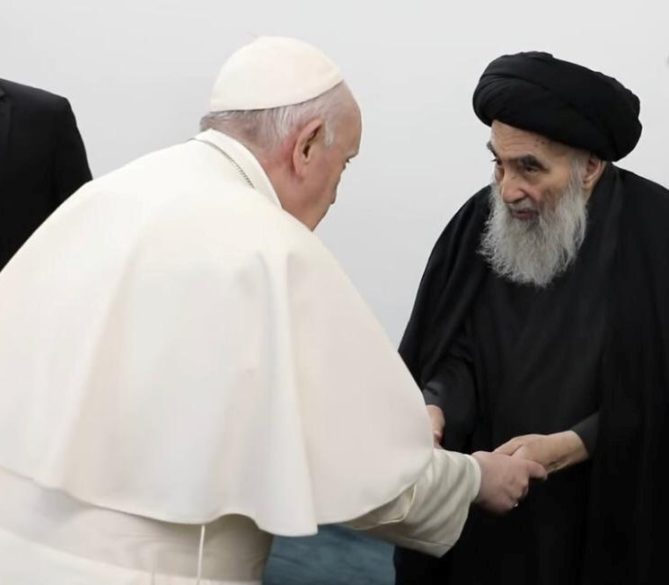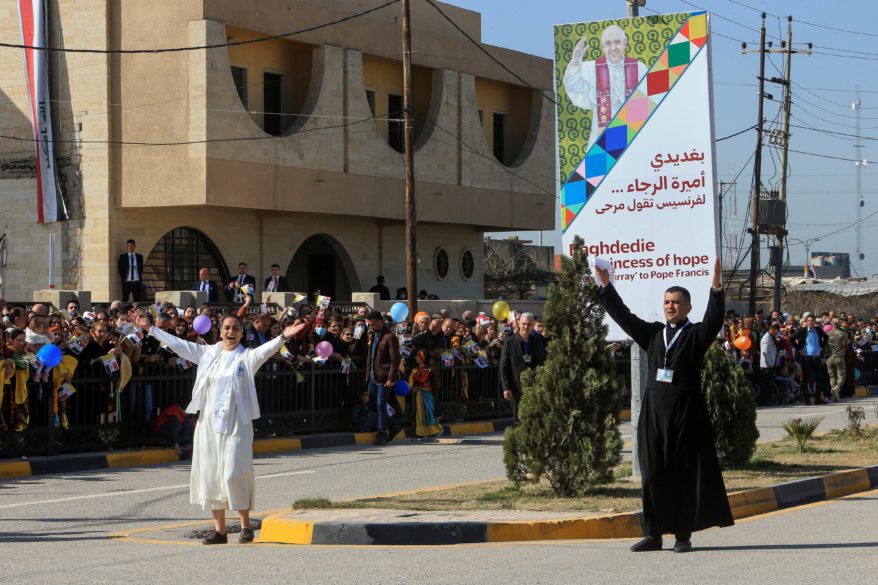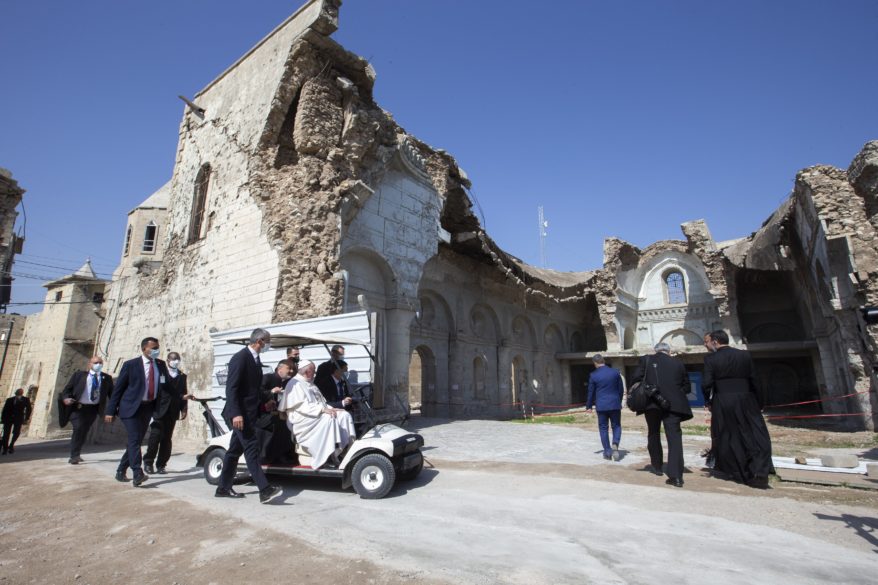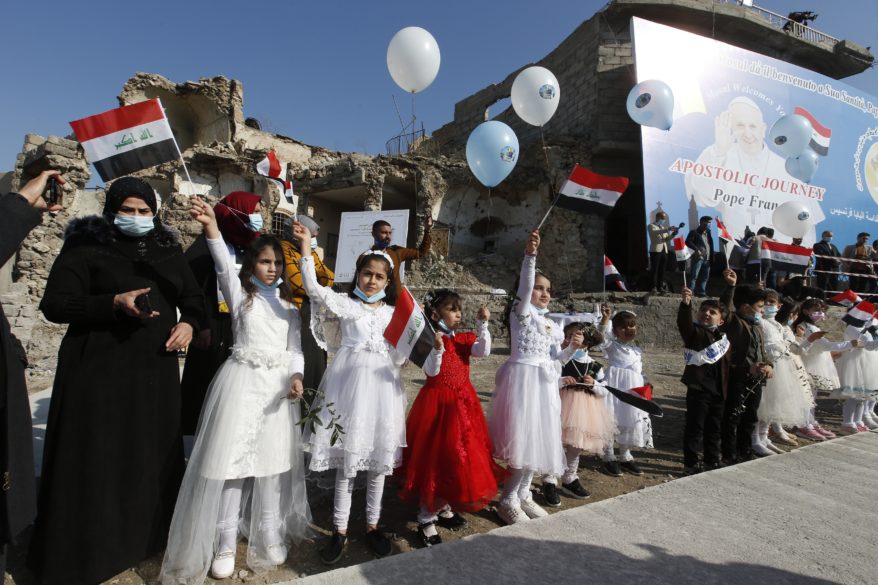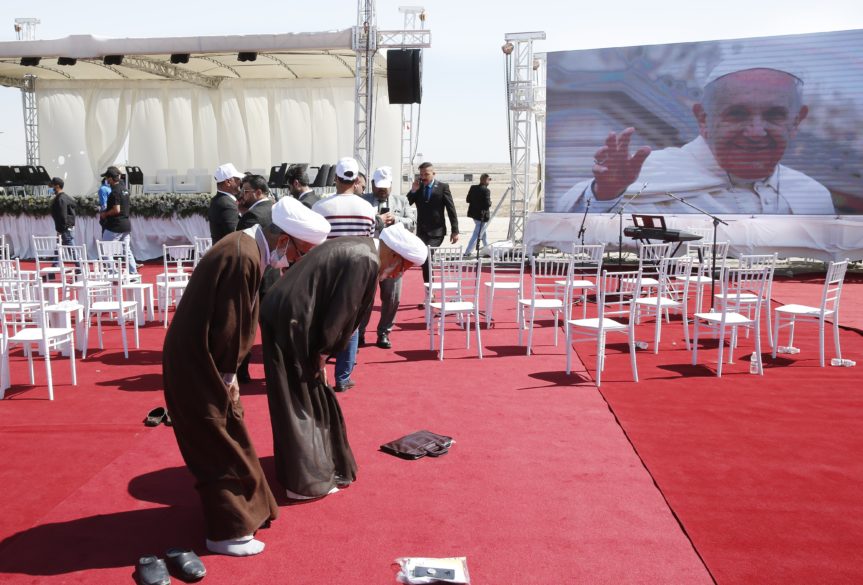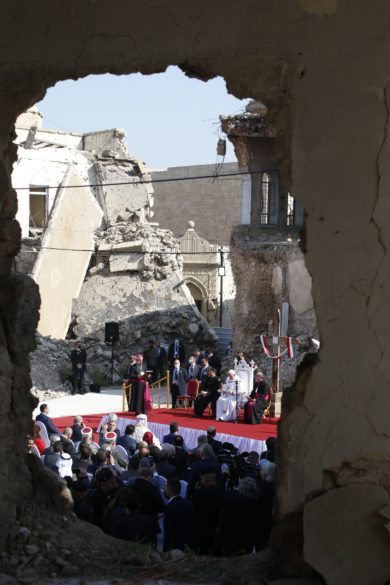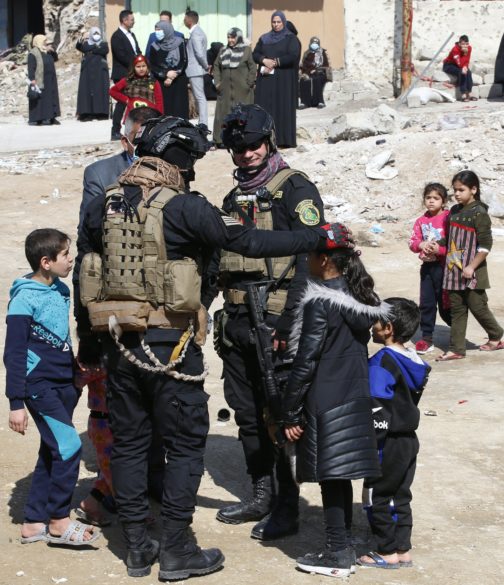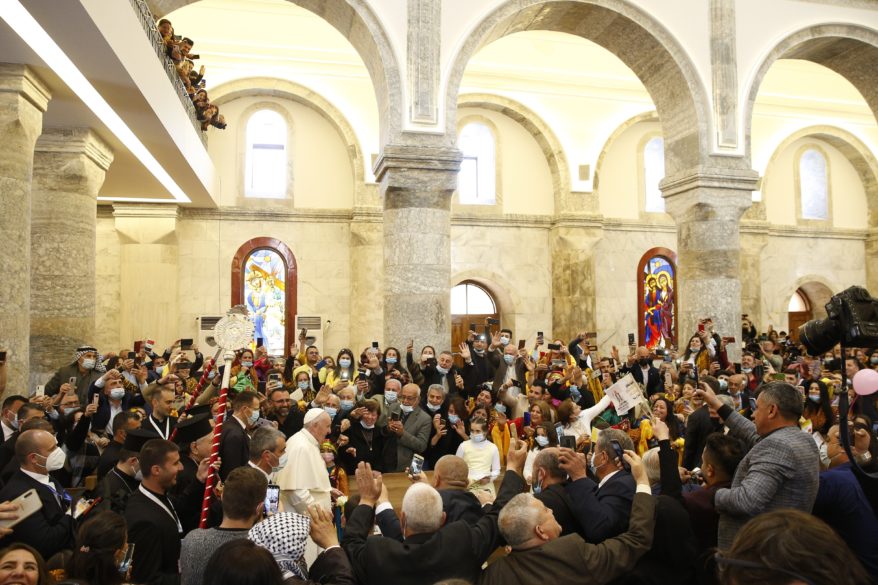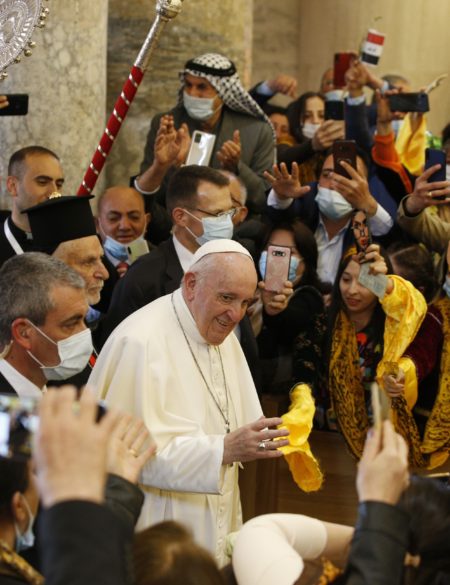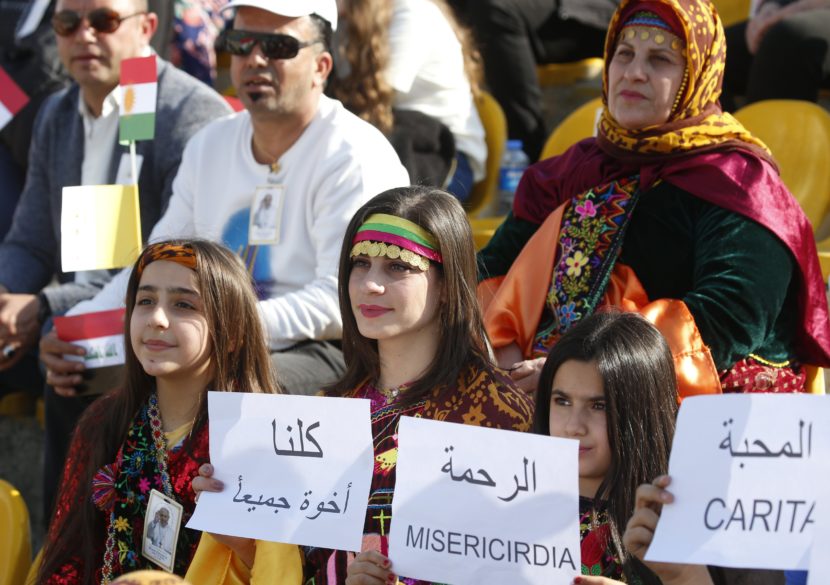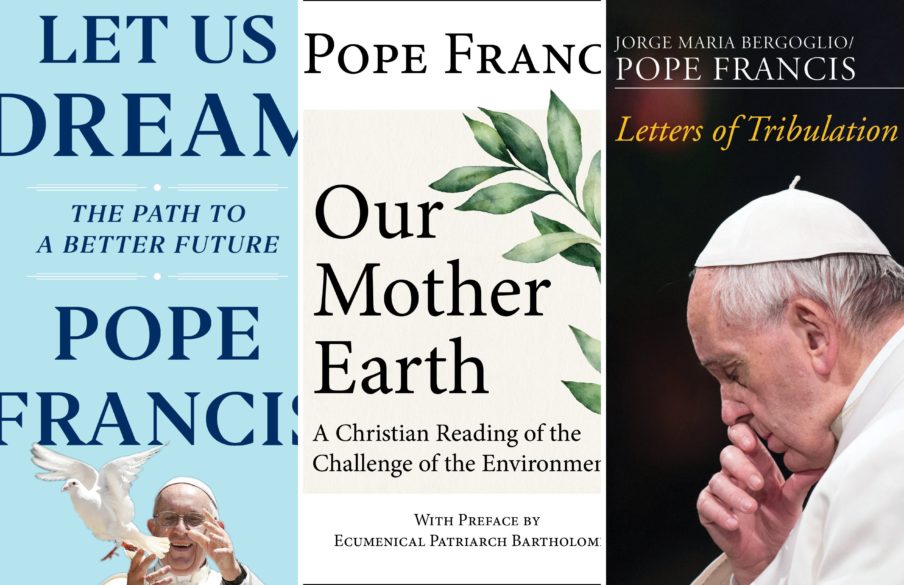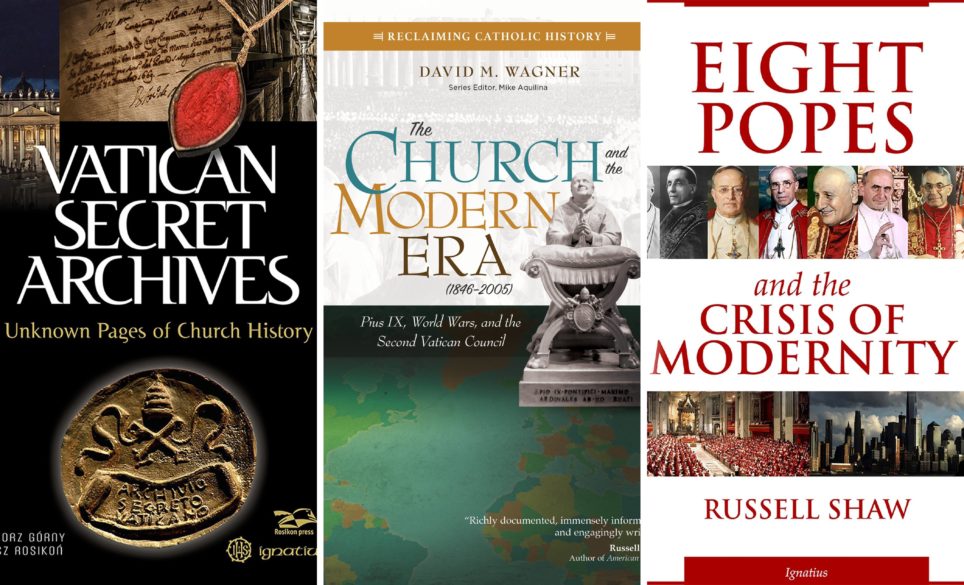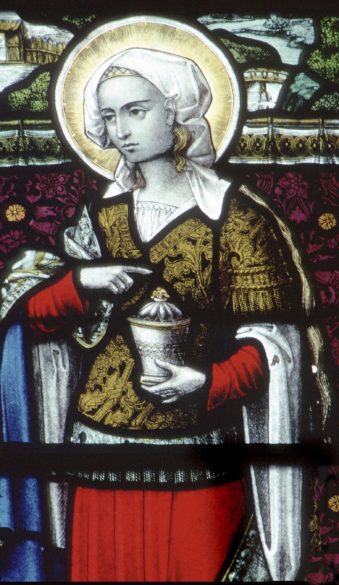NATION
CHICAGO (CNS) – Father Andrew Liaugminas of the Archdiocese of Chicago, has been appointed to serve as an official for the doctrinal section of the Vatican’s Congregation for the Doctrine of the Faith. The 37-year-old priest will serve with the congregation for five years and will support the congregation’s work promoting the church’s teachings on faith and morals. The oldest of the Roman Curia’s nine congregations, the CDF was founded in 1542 by Pope Paul III to promote and safeguard the church’s teachings throughout the world. Today, the CDF is responsible for fostering a greater understanding of the faith, aiding bishops in their role as teachers of the faith and answering difficult questions that arise on faith and morals.
WASHINGTON (CNS) – Former Cardinal Theodore E. McCarrick pleaded not guilty Sept. 3 in a Massachusetts court, where he is facing three counts of sexually assaulting a teenager in the 1970s. He was not taken under custody but was ordered to post $5,000 bail and have no contact with the alleged victim or children. The former high-ranking, globe-trotting church official also was ordered not to leave the country and surrendered his passport. His next court appearance is Oct. 28. The day before the arraignment, a former employee and a former priest of the Archdiocese of Newark filed lawsuits alleging unpermitted sexual contact by McCarrick for incidents in 1991. The Massachusetts case is the first time, however, that McCarrick has faced criminal charges for assault of a minor, which is alleged to first have taken place at a wedding reception in 1974 and continued over the years in different states.
WASHINGTON (CNS) – The “present ills of our economy” invite Catholics to reflect on ways to propose new and creative responses to vital human needs in a post-pandemic world, said Archbishop Paul S. Coakley of Oklahoma City, chairman of the U.S. bishops’ Committee on Domestic Justice and Human Development, in the U.S. bishops’ annual Labor Day statement. Acknowledging that the economy is showing signs of recovery despite the continuing pandemic, Archbishop Coakley said the current time presents an opportunity to “build a consensus around human dignity and the common good.” But despite signs of an economic recovery, he said in the statement released Sept. 2, millions of Americans continue to struggle financially because of unemployment, poverty and hunger made worse by the coronavirus pandemic. “There are still many uncertainties around this pandemic; however, we do know that our society and our world will never be the same,” the archbishop said. Archbishop Coakley credited and thanked the many workers “who have kept our country functioning during these trying times and worked under difficult and often underappreciated conditions.”
VATICAN
VATICAN CITY (CNS) – While financial reforms in the Vatican are progressing steadily, cases involving corruption and malfeasance in the Eternal City are “a disease that we relapse into,” Pope Francis said. In a wide-ranging interview broadcast Sept. 1 by COPE, the Spanish radio station owned by the Spanish bishops’ conference, Pope Francis said changes made in the Vatican’s financial laws have allowed prosecutors to “become more independent” in their investigations. “Let’s hope that these steps we are taking … will help to make these events happen less and less,” he said. During the interview, the pope was asked about the Vatican trial against 10 individuals and entities, including Cardinal Angelo Becciu, former prefect of the Congregation for Saints’ Causes, on charges ranging from embezzlement to money laundering and abuse of office. The charges stemmed from a Vatican investigation into how the Secretariat of State used $200 million to finance a property development project in London’s posh Chelsea district and incurred millions of dollars in debt. At the time, then-Archbishop Becciu served as “sostituto,” the No. 3 position in the Vatican Secretariat of State. Cardinal Becciu was forced to offer his resignation to the pope in September 2020, after he was accused of embezzling an estimated 100,000 euros of Vatican funds and redirecting them to Spes, a Caritas organization run by his brother, Tonino Becciu, in his home Diocese of Ozieri, Sardinia.
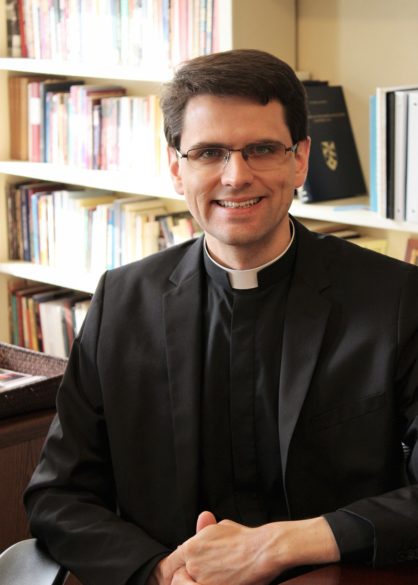
VATICAN CITY (CNS) – Pope Francis offered prayers to the victims and families affected by Hurricane Ida, which devastated the southern and northeastern United States. Pope Francis also offered prayers for countless refugees fleeing Afghanistan in the wake of the Taliban’s Aug. 15 takeover of Kabul and expressed his hope that “many countries will welcome and protect those seeking a new life.” “I assure my prayers for the people of the United States of America who have been hit by a strong hurricane in recent days,” the pope told pilgrims gathered in St. Peter’s Square Sept. 5 during his Sunday Angelus address. The Category 4 hurricane made landfall Sept. 1, carrying 150-mph winds in Louisiana and knocking out power, water and cellphone service. The remnants of Hurricane Ida later struck the northeastern United States, causing an estimated 41 deaths and flooding roads in New York, New Jersey, Pennsylvania, Maryland and Connecticut. Speaking about Afghanistan, Pope Francis said he prayer “for the internally displaced persons and that they may receive assistance and the necessary protection,” he said. “May young Afghans receive education, an essential good for human development. And may all Afghans, whether at home, in transit, or in host countries, live with dignity, in peace and fraternity with their neighbors.”
WORLD
BERLIN (CNS) – German bishops are concerned that a decision guaranteeing German health insurers will pay for pregnant women’s blood tests to detect Down syndrome will lead to abortion. Matthias Kopp, spokesman for the German bishops, said that already about 90% of cases in which an embryo has an extra chromosome result in termination of pregnancy, reported the German church news agency KNA. He expressed concern that the prenatal test eventually would be applied on a routine basis. “We as a church are observing with concern that the new, noninvasive prenatal diagnostical test procedure very often does not follow therapeutic aims,” Kopp said. “On the contrary, in the view of the church, these tests promote an alarming trend in the direction of a regular selection.” What was needed was early information, counseling and support in which the issue of termination of pregnancy was not the focal point, he said. A joint federal parliamentary committee gave the approval for the change, which is expected to take effect in the spring of 2022, KNA reported.
LAGOS, Nigeria (CNS) – The Catholic bishops of Nigeria have called on the priests and the lay faithful to make the Eucharist central to the life of the church rather than placing a premium on money or other transient things. In a statement at the end of their weeklong plenary meeting, they also advised priests to always ensure that “monetary matters do not distract the faithful or detract from the solemnity of the celebration.” Priests are to “celebrate the Eucharist as ‘servants’ of the mystery and not ‘masters’ of it,” the bishops said. In their Aug. 27 statement, the bishops also condemned the increasing insecurity and violence in Nigeria and called on the government to show respect for the sanctity of human life with a more strategic commitment to the fight against insecurity. The bishops urged government officials to take full responsibility for the prevailing culture of violence and impunity in Nigeria. “We recognize the efforts being made by government to fight insecurity in the land,” they added, appealing to the citizens to be law-abiding, vigilant, live by sound moral principles and shun violence and crime.
SEOUL, South Korea (CNS) – The mortal remains of the first three Korean Catholic martyrs have been recovered more than two centuries after their deaths, announced the Diocese of Jeonju. Ucanews.com reported that following historical research and DNA tests, it has been confirmed that the remains are of Paul Yun Ji-chung and James Kwon Sang-yeon, both beheaded in 1791, and Yun’s brother, Francis Yun Ji-heon, who was martyred in 1801. Bishop John Kim Son-tae of Jeonju made the announcement during a news conference Sept. 1. During his visit to South Korea in 2014, Pope Francis beatified the three along with 121 other martyrs persecuted and killed during the rule of the Joseon dynasty in Korea. Bishop Kim said the remains were recovered in March in Wanju, on the outskirts of Jeonju, near the burial ground of family members of another beatified person that was being converted to a shrine. “The discovery of the remains is a truly amazing and monumental event,” the bishop said, according to Yonhap News Agency.
